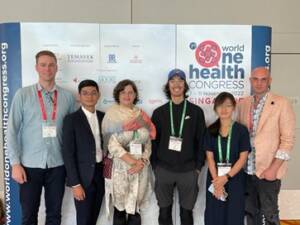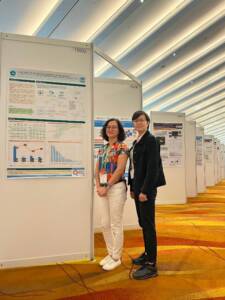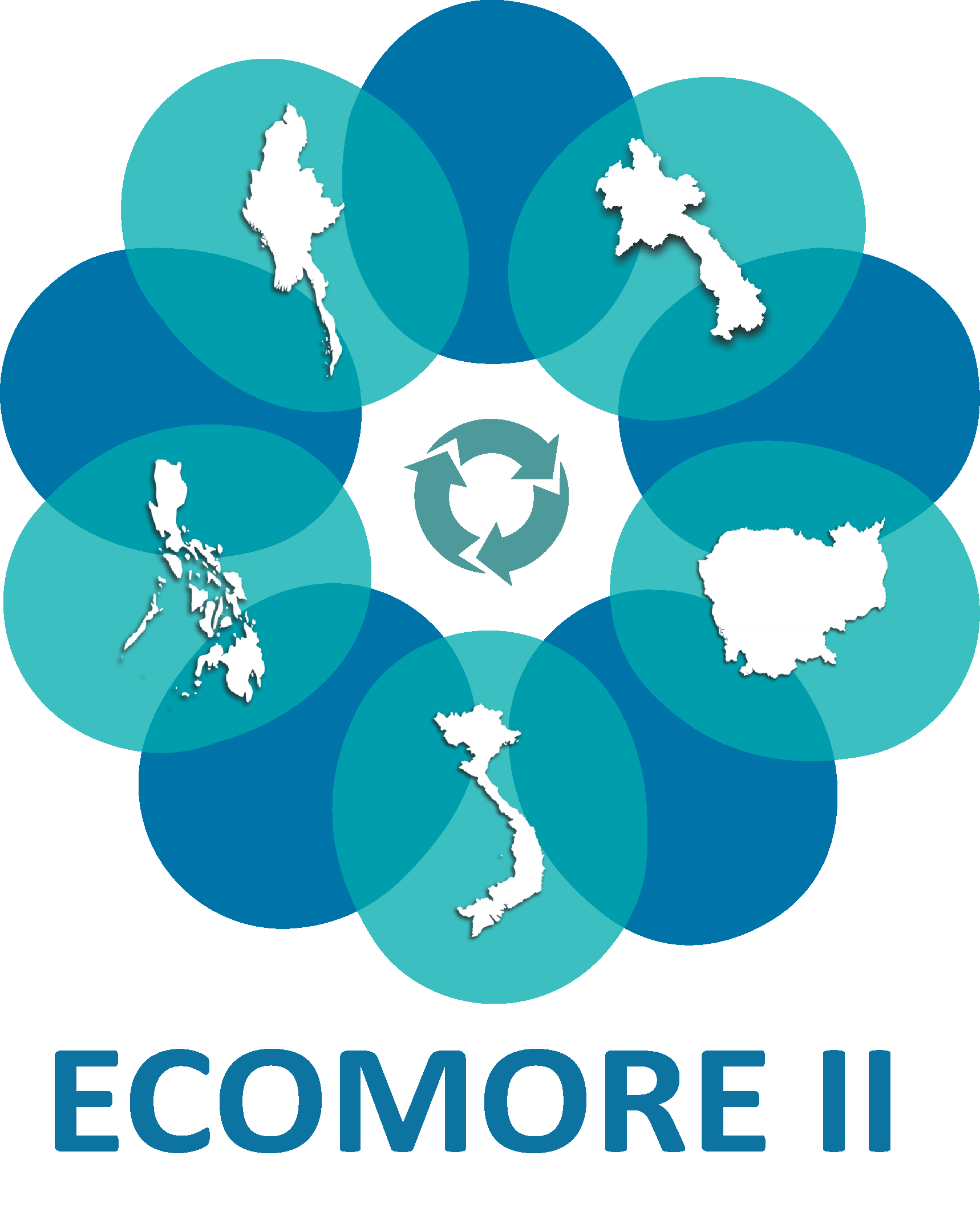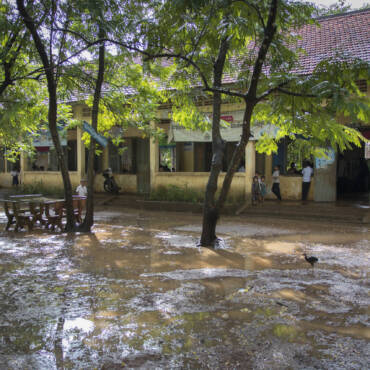The 7th World One Health Congress took place from November 7 11 in Singapore in 2022, with the aim of bringing together experts from around the world to advance the global One Health movement to improve health and well-being by preventing and mitigating crises that originate at the animal-human-environment interface. Doctors, researchers, policy makers and skate holders shared experiences and visions among topics such as, pandemic preparedness, a health system resilience, environment and biosecurity. Cambodia and Vietnam, involved in the ECOMORE project, had the opportunity to present their activities, on COVID-19 and leptospirosis respectively.
Molecular multiplex assay: a critical tool to detect and monitor respiratory pathogens
 Dr. Erik Karlsson, Deputy Head of the Virology Unit at Institut Pasteur du Cambodge, presented his team’s work on Molecular multiplex assays (MPA). The COVID-19 pandemic has increased the share of responsibility in viral respiratory infection mortality worldwide. Therefore, it is critical to utilize current surveillance systems such as the Global Influenza Surveillance and Response System (GISRS) to integrate SARS-CoV-2 detection. Minimizing the delay to diagnostic and sparing human resources in laboratories is critical to meet the challenging objectives of the pandemic response. Molecular multiplex assays (MPA), which detect simultaneously SARS-CoV-2, Influenza, and Respiratory Syncytial Virus (RSV) in a single test were compared to Global Influenza Surveillance and Response System (GISRS)/World Health Organization standards assays currently used in the laboratory. MPA represent a cost-effective solution to detect the return of influenza activity, alongside monitoring COVID-19 trends, and outbreaks of RSV as well as spillover of avian viruses, and therefore could be used in the surveillance systems.
Dr. Erik Karlsson, Deputy Head of the Virology Unit at Institut Pasteur du Cambodge, presented his team’s work on Molecular multiplex assays (MPA). The COVID-19 pandemic has increased the share of responsibility in viral respiratory infection mortality worldwide. Therefore, it is critical to utilize current surveillance systems such as the Global Influenza Surveillance and Response System (GISRS) to integrate SARS-CoV-2 detection. Minimizing the delay to diagnostic and sparing human resources in laboratories is critical to meet the challenging objectives of the pandemic response. Molecular multiplex assays (MPA), which detect simultaneously SARS-CoV-2, Influenza, and Respiratory Syncytial Virus (RSV) in a single test were compared to Global Influenza Surveillance and Response System (GISRS)/World Health Organization standards assays currently used in the laboratory. MPA represent a cost-effective solution to detect the return of influenza activity, alongside monitoring COVID-19 trends, and outbreaks of RSV as well as spillover of avian viruses, and therefore could be used in the surveillance systems.
Characteristics of human leptospirosis presented by NIHE
 Prof. Le Thi Phuong Mai, Head of Public Health at NIHE, Vietnam, presented through a poster, the results of the characteristics of human leptospirosis in three different geographical and climatic zones of Vietnam 3,815 patients with suspected leptospirosis were enrolled, from 11 public hospitals in 3 provinces: Thai Binh (North), Ha Tinh (Center) and Can Tho (South) in Vietnam. 68 (1.8%) of participants were Leptospira-confirmed and 248 (6.5%) of them were probable cases, whereas more than a third were positive for acute ELISA-IgM sera. 20 different serovars were found, of which Wolffi (14.2%), Hebdomadis (13.8%), and Icterohaemorrhagiae (12.6%) were the most predominant. The ratio of probable and confirmed cases of leptospirosis between females and males was 1.4:1, and cases were more likely to be detected in groups that are farmers.
Prof. Le Thi Phuong Mai, Head of Public Health at NIHE, Vietnam, presented through a poster, the results of the characteristics of human leptospirosis in three different geographical and climatic zones of Vietnam 3,815 patients with suspected leptospirosis were enrolled, from 11 public hospitals in 3 provinces: Thai Binh (North), Ha Tinh (Center) and Can Tho (South) in Vietnam. 68 (1.8%) of participants were Leptospira-confirmed and 248 (6.5%) of them were probable cases, whereas more than a third were positive for acute ELISA-IgM sera. 20 different serovars were found, of which Wolffi (14.2%), Hebdomadis (13.8%), and Icterohaemorrhagiae (12.6%) were the most predominant. The ratio of probable and confirmed cases of leptospirosis between females and males was 1.4:1, and cases were more likely to be detected in groups that are farmers.
On the whole, the five-day Congress was a great success. With all the focus on preparedness, prevention must not be forgotten, as Dr. Monique Eloit, Director General of the World Organization for Animal Health pointed it during the opening ceremony “We urgently need to transform our relationship with the environment and the way we address pathogens’ emergence and spread. When talking about prevention, preparedness, response, please do not neglect the first P—prevention, which is the first crucial step to stop or at least limit spillovers of zoonotic diseases from animals to humans”.



Add Comment